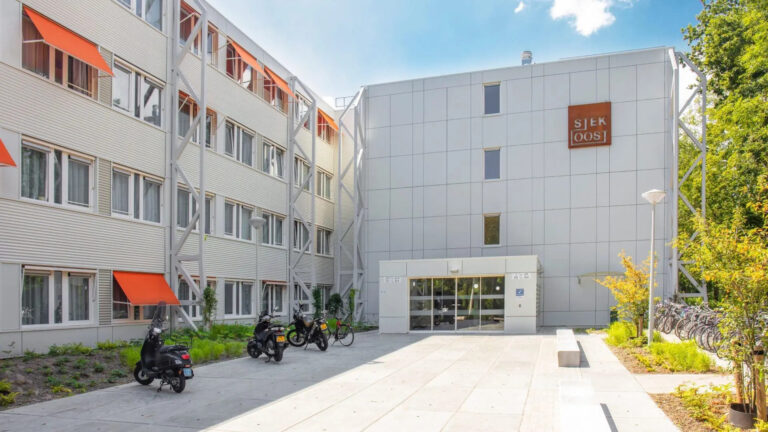On 21 October, the Mária Kopp Institute for Demography and Families (KINCS) presented its new publication, Family-Friendly Sustainability – Best Practices for Sustainable Growth and Market Competitiveness, at a press conference in Budapest. The event featured remarks by Deputy Scientific Director of KINCS Dr András Pári, President of the Supervisory Authority for Regulated Activities (SZTFH) Dr László Nagy, and State Secretary for Families Dr Zsófia Koncz at the Ministry of Culture and Innovation.
Opening the event, Dr András Pári emphasized that connecting family life and work is a central focus of KINCS’s activities. He underlined that developing family-friendly workplace environments is increasingly important to employers, as it leads to tangible benefits such as greater employee retention and easier recruitment. ‘A family-friendly approach supports corporate success,’ he said, ‘and helps ensure that career advancement and family life strengthen each other rather than stand in opposition.’

He noted that flexible arrangements like remote or part-time work, additional leave after childbirth, childcare support during school holidays, and health promotion programmes are becoming essential workplace measures. Such initiatives not only benefit parents but also employees caring for elderly or ill family members. ‘The family is the cornerstone of society,’ Pári said, ‘and our shared goal is to make family life and employment mutually reinforcing.’
Dr László Nagy presented the new SZTFH guide, describing it as a practical and immediately applicable resource for companies seeking to implement family-friendly policies. ‘Social sustainability is not just a matter of values—it is an economic factor,’ he stated. He emphasized that the Hungarian ESG (environmental, social, and governance) framework has incorporated family-oriented considerations from the start, making it forward-looking and uniquely consistent.
According to Nagy, companies that invest in family-friendly practices experience lower turnover, stronger loyalty, and higher levels of innovation and productivity. ‘Employee retention is one of the greatest challenges today,’ he said. ‘Family-friendly policies create a balance between work and private life, fostering engagement and commitment.’ He added that as more such companies emerge, they contribute to the demographic sustainability of the national economy.
‘Our aim is to promote value-based and people-centred thinking in a competitive corporate culture’
Presenting examples from SZTFH’s own operations, Nagy mentioned initiatives such as workplace health programmes, community hikes, tea gatherings, and children’s summer camps. The authority also maintains active ties with employees on parental leave and with retirees. ‘This is our fourth published guide,’ Nagy said, ‘but the first developed through such professional cooperation. Our aim is to promote value-based and people-centred thinking in a competitive corporate culture.’

Dr Zsófia Koncz praised the close collaboration behind the publication and placed it in the broader context of Hungary’s family policy. She recalled that since 2010, the government has launched a comprehensive ‘family-friendly turnaround’, based on the belief that strong families make a strong nation. ‘Every measure since then has aimed at creating jobs and expanding family support,’ she said, citing tax benefits, maternity allowances, and personal income tax exemptions among the milestones.
She highlighted that beyond improving the financial situation of families, the government focuses on embedding a family-friendly mindset into everyday life and the workplace. ‘The balance between work and family is a key priority,’ Koncz noted. Employment among mothers with young children has risen significantly, supported by an expanding nursery system that now offers over 70,000 places nationwide, more than double the capacity of a decade ago.

‘A sustainable future is unimaginable without a family-oriented approach’
The recently concluded Workplace Nursery Programme will further increase this number, reflecting employers’ growing commitment to supporting families. Koncz also underscored that Hungary’s ESG model is unique in the world for explicitly integrating family-friendliness into sustainability criteria. ‘A sustainable future is unimaginable without a family-oriented approach,’ she said.
The State Secretary pointed to the success of the Family-Friendly Workplace Programme, which has seen over 760 winners—companies, institutions, and municipalities—over the past 15 years. Many initiatives, such as workplace playrooms, family days, and community excursions, were launched thanks to the programme’s encouragement. ‘A strong workplace community reduces turnover and boosts satisfaction,’ Koncz explained, adding that this was one of the motivations behind the new guide.

She concluded that the publication is more than a manual; it represents a broader vision in which family and sustainability are inseparable components of Hungary’s economic and social model. The new guide is available digitally on the websites of both SZTFH and KINCS.

Related articles:







